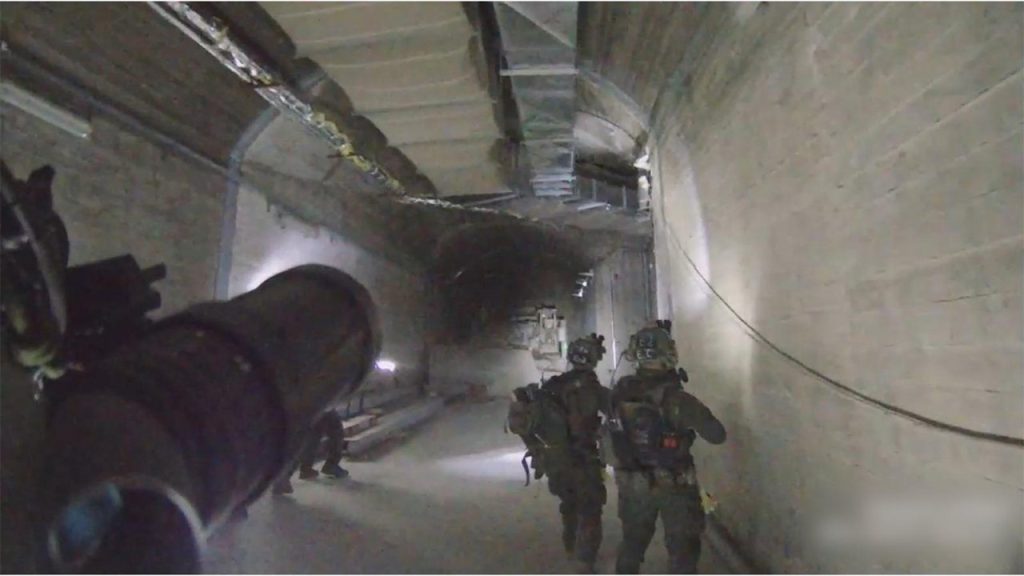In a dramatic raid in Syria, elite Israeli forces destroyed a secret underground long-range missile factory in September, as revealed by the Israel Defense Forces (IDF). The operation, described as one of the most significant and complex in recent years, also uncovered information about Syria’s chemical weapons program. The factory, which was located underground inside a mountain, was designed to manufacture between 150-350 missiles a year, including precision-guided missiles. The IDF’s elite air force unit Shaldag participated in the mission, which resulted in the deaths of 30 Syrian soldiers.
During the operation, information about Syria’s chemical weapons program was found, including notebooks and documents containing details about specific chemicals. The troops dismantled the facility to ensure the safety of Israel. The precision-guided missile factory was intended to supply Hezbollah with missiles for aerial attacks on Israel and for the Iranian axis in Syria. The operation involved over 100 soldiers, as well as dozens of aircraft including helicopters. Israel’s Prime Minister Benjamin Netanyahu praised the operation as a preventive measure against the Iranian axis’s efforts to arm themselves against Israel.
Following a devastating invasion by Hamas in October 2023, Israel has faced threats from various factions supported by Iran, including Hezbollah, the Houthis, and the Assad regime in Syria. The raid on the Syrian missile factory was part of an ongoing effort to counter these threats and prevent further attacks on Israel. The operation could also be seen as a warning to Iran’s nuclear weapons facilities, signaling Israel’s determination to confront any potential threats posed by the country’s nuclear program. The Israeli perspective has shifted in recent years, with a greater focus on addressing immediate threats rather than solely on containing the main nuclear threat posed by Iran.
The construction of the Syrian missile factory began in 2017 and ended in 2021, with manufacturing machinery sent from Iran to the site. Most of the components in the factory were sourced from Iran, highlighting the close ties between the two countries in supporting militant groups hostile to Israel. In the aftermath of the raid, the IDF spokesperson revealed that Hezbollah had launched over 17,000 projectiles toward Israel from October 2023 to November 2024, resulting in casualties among Israeli civilians. The successful operation in Syria was part of Israel’s ongoing efforts to defend itself against external threats and prevent further attacks on its territory.
The complexity of the commando raid and the destruction of the underground missile factory underscored Israel’s determination to confront external threats and protect its citizens. The operation was a significant blow to Hezbollah and the wider Iranian axis, disrupting their plans to acquire advanced weapons and carry out attacks on Israel. Prime Minister Netanyahu’s praise for the operation reflected the government’s commitment to defending Israel against all threats, including those emanating from neighboring countries supported by Iran. The raid could also signal a shift in Israel’s approach to regional security, with a greater emphasis on preemptive actions to neutralize hostile capabilities before they can be used against Israel.


